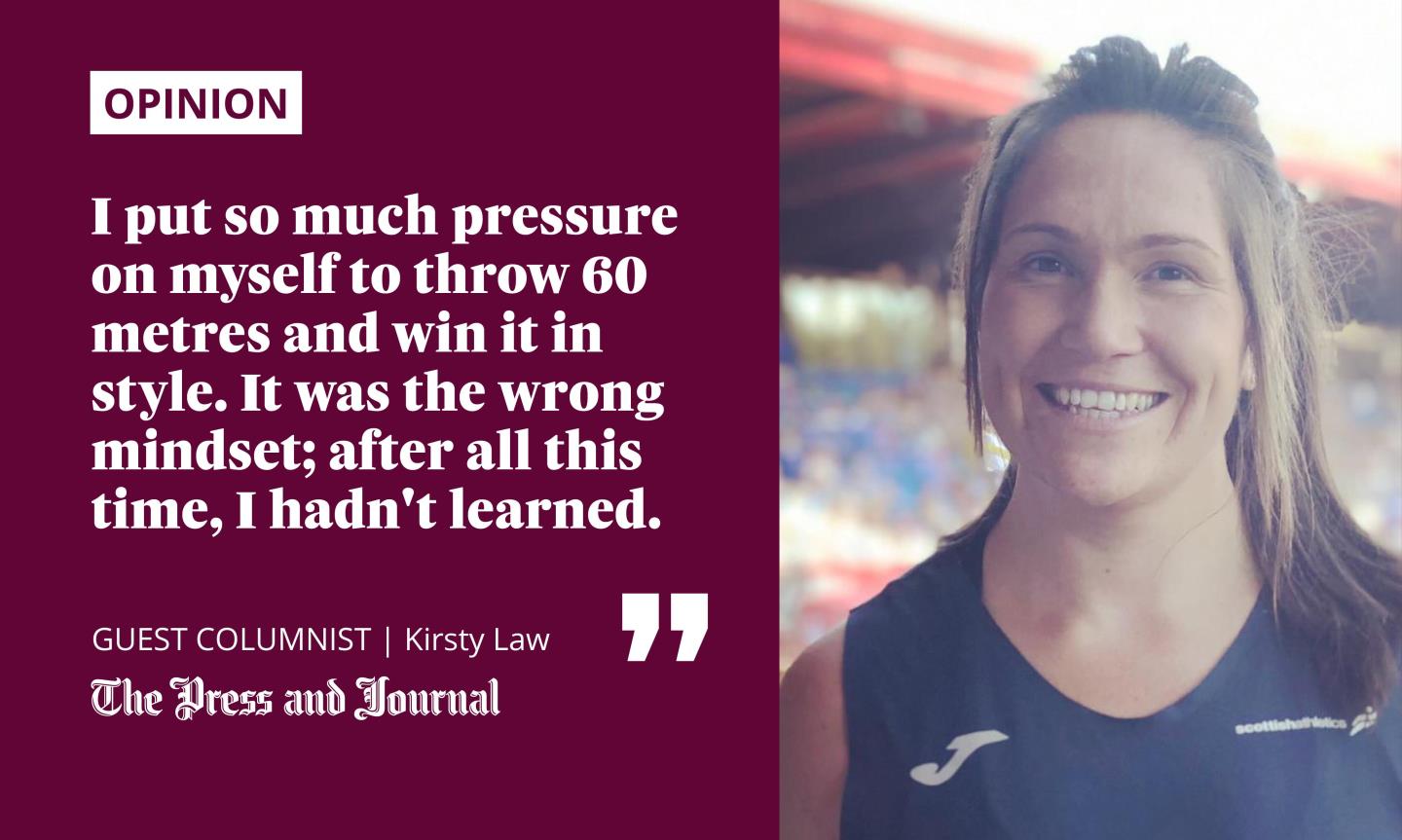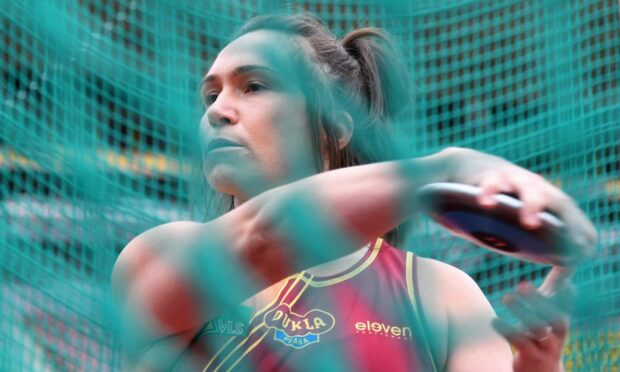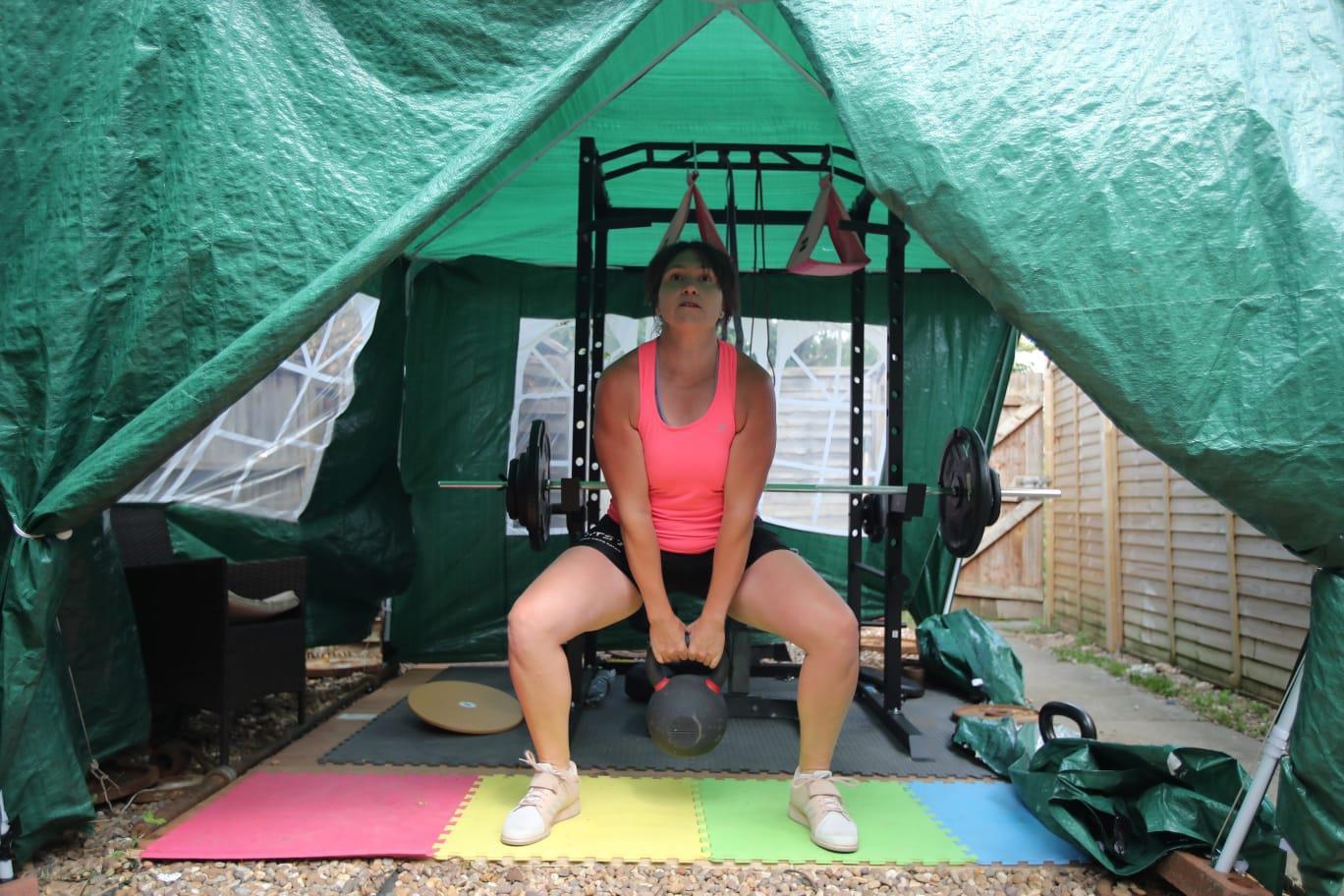I am classed as an elite athlete and I love my field event, namely discus. I have been competing now for over 20 years so feel able to talk about the issue of mental health.
For perspective, although I am an elite athlete, I am not funded and have to work to support myself. I work at a high security NHS mental health hospital and must thank them for their support in my athletics career.
Personally, I have not suffered from depression but have seen first-hand the impact it has on athletes in my training group, not only in their sporting environment but also their personal lives.

Mental health in the sporting world is something that has been spoken about much more openly over the last few years. During the recent Tokyo Olympics, even the biggest names in world sport showed their human side by admitting to their mental health struggles, with American gymnast Simone Biles being the most notable athlete to open up on the issue.
Anxiety is common when there’s pressure without perspective
As athletes, we’re often programmed from a young age not to show vulnerability or weakness to competitors in any form. However, I really feel like this “old school” mentality creates a lot of issues, especially those who go on to compete at the elite or professional level. There, the pressure to perform or maintain a certain image is much higher, and you must also subject yourself to potential criticism from fans and the media.
I have, at times, experienced issues with controlling anxiety in certain competitions or during training blocks where training has not been going as well as I would like. When you’ve dedicated more than 20 years of your life to achieving a goal, the pressure you put on yourself to achieve this goal is immense. It can become overwhelming when perspective is lost.
I’ve gone through phases where I have anxiety before a training session even begins because I’m worried that I will continue where I left off from the previous session. I’ve gone into competitions where I can’t feel my body because the anxiety has taken over and I am no longer in control.
These anxiety issues are something I continue to work on to this day, but I’m not the only one applying pressure. Those around you put pressure on you, sometimes without even realising it – family, friends, media and even the sports governing body can all take their toll.
Additionally, a lot of things can affect you in the background without you even realising it, social media being a prime example.
Sky-high expectations and all eyes on you
I work in an environment which can leave me mentally drained. This can affect my mood which, in turn, can affect my training. There are occasions at work where my adrenaline can peak and sometimes that leaves me physically drained, making training even harder.
When I’m standing in the throwing circle, it’s different to the build-up. The build-up is the really nerve-racking thing; the place where I have to remain calm.
There is a big crowd and the commentator introducing says what you’ve done this year; they focus the spectators on you. I have to stay focused on me – I have to forget the crowds, I have to do what I have been training for. I can’t worry about what anyone else is thinking or doing.
“I have to control my emotions and my nerves and channel them into my throw. It is so hard to stay focused – I feel the same whether it is a big competition or a small one
I have 60 seconds, potentially six throws, to show what I can do – all the hard work and dedication after so many missed events. I am guaranteed three throws and then the top eight competitors get another three – so I have to get a good one in the first three rounds.
I have to do this six times to try and get the best throw out there. All while I know my coach, my family, my rivals, the media and the fans are watching me.
All those people have their own expectations and their eyes on you. You feel it. You don’t want to let them down.
I have to control my emotions and my nerves and channel them into my throw. It is so hard to stay focused – I feel the same whether it is a big competition or a small one.
Give athletes a break
I can suffer from competition and training anxiety. This happened to me at the 2021 British Athletics Championships. I went in as a favourite. I had thrown a personal best just days before.
I put so much pressure on myself to throw 60 metres and win it in style. It was the wrong mindset; after all this time, I hadn’t learned.
It was like an out of body experience. My muscles felt floppy, I had no tension. I put too much pressure on myself and it was my worst competition of the decade. I swore to myself then that I would not let anything like that happen again.
If you are an athlete who suffers from any kind of mental health issue, whether its sports-related or not, I strongly suggest you open up and speak with someone you trust completely. I promise you, it will be a positive step that you will not forget.
And to those individuals who are quick to judge athletes when they underperform or don’t meet your expectations – give them a break.
In the same way that in everyday life you never know what somebody is dealing with, the athletes that you think are machines are only human and deal with exactly the same issues as everyone else. Just like a swan, they may seem calm on the surface but underneath they are paddling like hell just to stay afloat.
If you can, make a commitment to find time on a daily basis to relax, even just for a few minutes. And lose your phone occasionally.
Kirsty Law is an athlete from the Black Isle and was British discus champion in 2020


